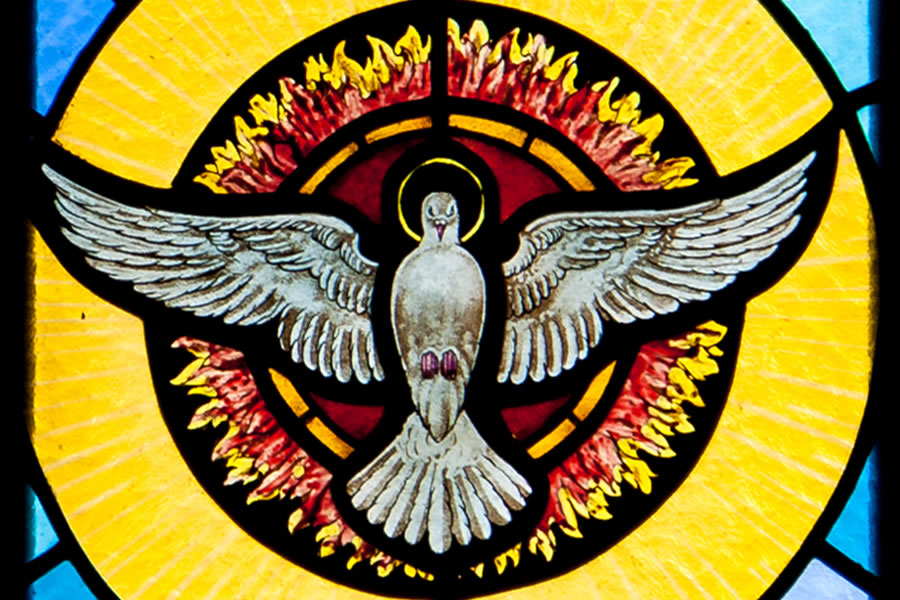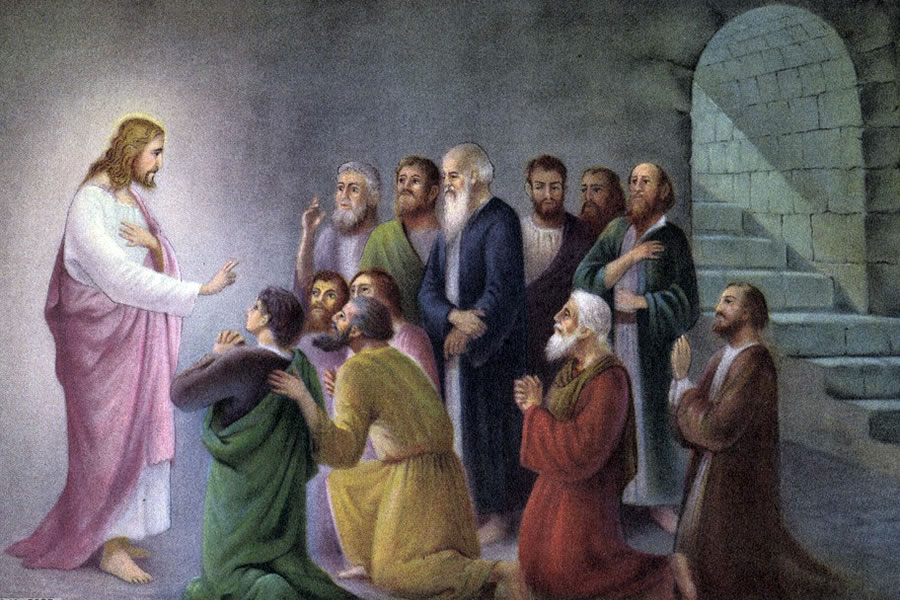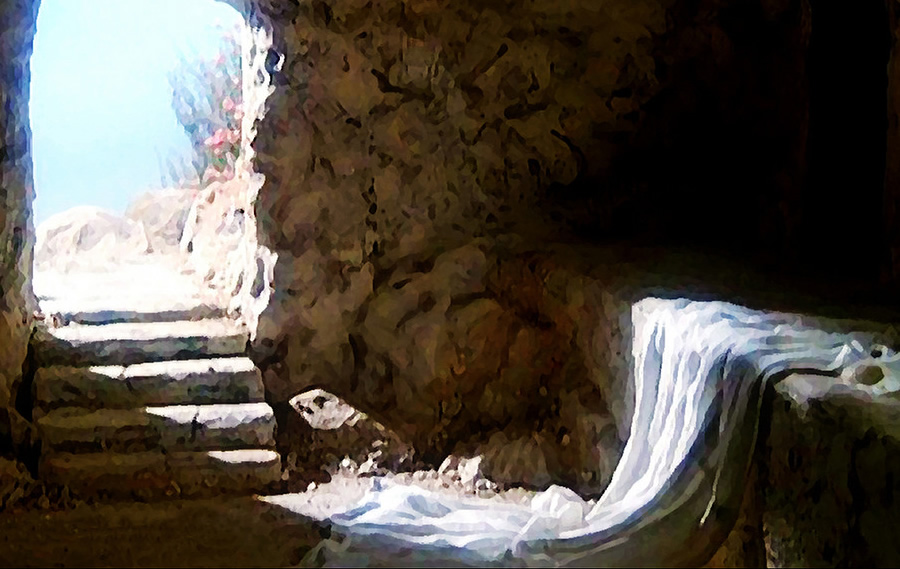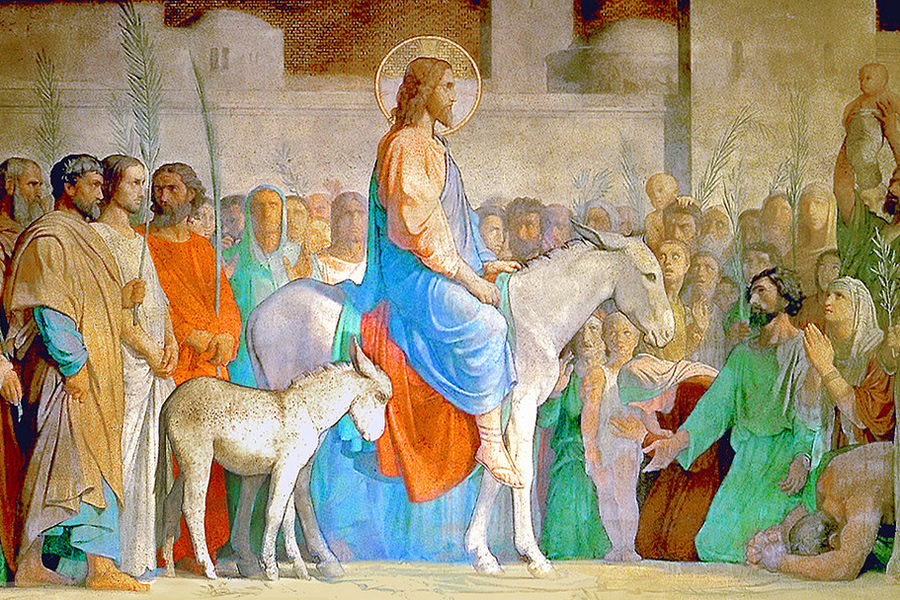St. Francis of Assisi Weekly Reflections

Holy Spirit, Guide Me
05-26-2019Weekly ReflectionWe Celebrate Worship Resource, Vol. 44, No. 2To see the effect of the Holy Spirit upon the work of the apostles, one has only to consider today’s first reading and Gospel. In John, Jesus promises his disciples that “the Advocate, the Holy Spirit,...will teach you everything and remind you of all that I told you” (John 14:26). In Acts, the apostles and elders call upon the Holy Spirit. They have to decide whether or not Gentiles needed to be circumcised to become Christians. Jesus had called on his disciples to preach the Good News to all nations, but had never said what rules Gentiles needed to follow. The scene in Acts occurred around 50 A.D., meaning that about twenty years had passed between the time the Holy Spirit came upon the disciples and apostles and elders met in Jerusalem to consider this issue. They needed to discuss the issue among themselves, but they also needed someone to guide them, to teach them, and to enlighten them so that they could make the right decision. With the assistance of the Holy Spirit, they decided that Gentiles need only follow very limited Jewish laws. Now, nearly two thousand years later, we continue to call upon the Holy Spirit to guide, teach, and enlighten us as we struggle with difficult questions.
When do you look to the Holy Spirit for guidance?
READ MORE
Perseverance
05-19-2019Weekly ReflectionWe Celebrate Worship Resource, Vol. 44, No. 2Perseverance. This is what the disciples needed when spreading the Good News around the Roman Empire in the face of persecution and hardship. This is what the early converts needed as they learned about Jesus Christ and lived out their new faith. This is what we all need in following the new commandment Jesus gives his disciples in the Gospel today. Perseverance. Once the exhortation ends and everyone returns home to their day-to-day responsibilities, that euphonric feeling fades away. So after Paul and Barnabas landed at Perga and traveled through Pamphylia and Pisidia and visited the cities of Antioch, Iconium, and Lystra, they retraced their steps exactly and “returned to Lystra and to Iconium and to Antioch,...then traveled through Pisidia and reached Pamphylia” (Acts 14:21, 24). Why bother? With the whole world to convert, why go back exactly the same way? Perhaps because they realized that their message was inspirational, but difficult. “Love one another.” Sure. “As I have loved you.” Uh-oh. Jesus’ love is a sacrificial love, culminating in the ultimate sacrifice. To love others this way—to put others first– is more difficult, more unpleasant, more exhausting than it seemed when Paul and Barnabas first spoke so fervently about it. We need perseverance.
When do you find it difficult to persevere in living out your faith?
READ MORE
God Will Wipe Away Every Tear from their Eyes
05-12-2019Weekly ReflectionWe Celebrate Worship Resource, Vol. 44, No. 2Today’s readings are quite dramatic, one featuring religious authorities who opposed the apostles Paul and Barnabas “with violent abuse,” another highlighting a crowd of people who had lived through the persecution of the early church. However, the lasting impression in each of the readings is one of tender comfort and hopeful reassurance. The church of the first century thrived with intense growth but also met with frequent persecution. As Christianity broke away from Judaism, both religious and state authorities targeted proselytizers of the new faith. Paul and Barnabas felt the wrath of the authorities and were expelled from Antioch in Pisidia. Yet as this passage ends they and the early Christians “were filled with joy and the Holy Spirit” (Acts 13:52). They were not filled with anger and resentment, or even fear and despair, but with hope and joy, for they knew God was with them. The Roman state offered no religious liberty to its subjects. Christians could be killed for rejecting the pagan faith of the Romans. Yet they were assured in their faith that “God (would) wipe away every tear from their eyes” (Revelation 7:17), for Jesus said, “I give them eternal life, and they shall never perish” (John 10:28).
How do you feel the consolation of your faith during times of hardship?
READ MORE
What Makes Us Worthy?
05-05-2019Weekly ReflectionWe Celebrate Worship Resource, Vol. 44, No. 2What makes us worthy of what we have? We look at people who have fame, wealth, and success and wonder if they are really worthy of these blessings. In Revelation, angels and elders cry out, “Worthy is the Lamb that was slain to receive power and riches, wisdom and strength, honor and glory and blessing” (Revelation 5:12). Clearly, Christ is worthy of all these attributes, for he suffered and died to bring salvation to the whole world. In Acts, however, the rewards for worthiness are much different. Peter and the apostles, condemned by the Sanhedrin for preaching the gospel, rejoice at having been “found worthy to suffer dishonor for the sake of the (Lord’s) name” (Acts 5:41). To be condemned by the Sanhedrin, as Jesus was, is an honor. But before Peter got to this point, before he caught the netful of fish with the risen Lord, he did something quite dishonorable in the eyes of the Lord. On the night Jesus was arrested, Peter denied Jesus three times. In today’s Gospel, Jesus gives Peter three opportunities to repent, to undo his denials, to acknowledge his love for Jesus. After each affirmative answer, Jesus, the Good Shepherd, tells Peter to care for his sheep. Worthy is Peter to shepherd the flock, the church.
How are you worthy in the eyes of the Lord?
READ MORE
Do you also need to See and Touch like Thomas?
04-28-2019Weekly ReflectionWe Celebrate Worship Resource, Vol. 44, No. 2It’s hard to beat eyewitness testimony, especially testimony from multiple eyewitnesses, and people whom you can trust, to boot. It was not enough for Thomas, though. He needed to see. He needed to touch. So the following week he makes sure to be there. Jesus, returning to the Twelve, does not reprimand Thomas; in fact, he invites him to prove it to himself. But then he praises those who believe without seeing, without witnessing firsthand, without being able to prove it. These are the “great numbers of men and women” in the first reading, who come to believe when they see the faith and hear the testimony of disciples like Peter (Acts 5:14). These are the ones who will hear Johns’ visions from Revelation, which Jesus insisted he write down. These are also the people seated around you today, men and women, young and old, who gather in Jesus’ name each week. Though it may be two thousand years later, we too are the ones for whom the testimony of the disciples, the evangelists, the visionaries, and the letter writes was meant. Now, in turn, we are those witnesses—witnessing to our faith in the risen Lord, here and now, when we gather in this sacrament, in his Body and Blood, in Word and Eucharist.
How can you bear witness to others?
READ MORE
He had to Rise from the Dead
04-21-2019Weekly ReflectionWe Celebrate Worship Resource, Vol. 44, No. 2Resurrection changes everything. It stunned the disciples. Mary Magdalene, Peter, the disciple whom Jesus loved, the other apostles—they were all surprised, “for they did not understand the Scripture that he had to rise from the dead” (John 20:9). Keep in mind that Jesus’ disciples did not write letters, or testimonies, or Gospels until years later. What we hear today was written well after they had encountered the risen Lord in one way or another. It was also after they realized that Jesus had prepared them for his resurrection well before they had come to Jerusalem. That first Easter morning, they were not expecting this. This mission that appeared to have ended in failure had been turned upside down. The tomb was empty. Jesus could not be contained in this place for the deceased. He had defeated death. He lives! And because he lives, we who have been baptized into his death live as well. This is why Paul tells the Colossians to seek what is above. This is why Paul tells the Corinthians to throw out the old yeast and bake a fresh batch of dough. Jesus is new yeast and we are new dough. With Christ in us, we shall rise as well. This is our Easter hope. This is our Easter joy.
How does the Easter message change the way you live your life?
READ MORE
Jesus Teaches Us Compassion
04-14-2019Weekly ReflectionWe Celebrate Worship Resource, Vol. 44, No. 2He had to have heard him. Even on the cross, his last breath just hours away, Jesus heard the criminal next to him when he addressed him, so he must have heard him when he’d said to the other criminal, “We have been condemned justly, for the sentence we received corresponds to our crimes” (Luke 23:41). He makes no pretense of innocence. He makes no excuse for his sentence, so his crime must have been particularly heinous. But now, hours away from death himself, he addresses Jesus with one thing, one thing only: “Jesus, remember me when you come into your kingdom” (23:42). Jesus, who throughout his Passion had acted with boundless compassion (“compassion” literally meaning “to suffer”), praying that Peter’s faith not fail (22:32), praying that disciples not suffer (22:40), healing the high priest’s servant’s ear (22:51), comforting the women who accompanied him (23:28), and asking forgiveness of those who condemned him (23:24), now assures this criminal, this criminal whom he has heard admit that he was condemned justly and sentenced appropriately, “Amen, I say to you, today you will be with me in Paradise” (23:43). What consolation it must give us to know the extent of Jesus’ compassion.
Follow the example of Jesus, how can you be compassionate even while you are suffering?
READ MORE
Neither Do I Condemn You
04-07-2019Weekly ReflectionWe Celebrate Worship Resource, Vol. 44, No. 1The people who gathered in the temple area that day expected to witness a stoning. The woman had been caught in adultery, so according to Moses, she deserved to be stoned. But instead they end up witnessing a dramatic act of redemption. Jesus outwits the authorities who want to trap him. When no one is left to condemn the woman, Jesus forgives her, releases her, and tell her to sin no more. She had expected to be killed, but instead she is set free. She has been brought back to life. Brought back to life like the Israelites, out of bondage and into the promised land in Moses’ time. Brought out of exile and back home, in Isaiah’s era. Brought back to life like Saint Paul, who had persecuted Christians, but now was “taken possession of by Christ” (Philippians 3:12). We come here today as sinful people. If we were judged by the worst we have done or failed to do, would we not be condemned? Yet we too are touched by God’s grace. In God’s care, in Christ’s hands, we sinners, like the adulterous woman, like the Chosen People, like Saint Paul, are redeemed. We are brought back to life.
Do Jesus’ words give you pause when you are about to cast stones?
READ MORE
Restoring Our Bond with God
03-31-2019Weekly ReflectionWe Celebrate Worship Resource, Vol. 44, No. 1Reconciliation is a powerful act. It takes a bond that has been broken and makes it whole again. It restores the unity of a relationship, of a family. Today’s Gospel—the parable of the prodigal son—is a beautiful example of reconciliation. The younger son broke his bond with his father and the unity of his family. When he returned home after dissipating his money, his morals, and his dignity, he thought that that bond was too broken for reconciliation. But his father, in welcoming him back without judging him, without even asking what had happened, restored the bond. They were whole again. In the first reading, God reconciled with the Israelites, restoring them to their native land—the promised land—which once again could provide them with sustenance and freedom. Then we hear Saint Paul tell us that God and the world are reconciled through Christ, restoring the relationship that had been broken repeatedly through sin. The example of the prodigal son’s father gives us hope, hope that we are never beyond reconciliation, hope that on matter how broken our relationship, it is always able to be made whole again.
How is my relationship to God broken? How are my relationships with others in need of reconciliation?
READ MORE
Repent or Parish
03-24-2019Weekly ReflectionWe Celebrate Worship Resource, Vol. 44, No. 1We can look at today’s readings in two ways. On the one hand, we can be intimidated by the warnings. Jesus talks of people who have died tragically and unexpectedly. Twice he warns, “But I tell you, if you do not repent, you will all perish as they did!” (Luke 13:3, 5). Saint Paul warns the Corinthians that many Israelites disobeyed God and were struck down, an example for future generations. On the other hand, we also hear of God’s mercy. God hears the Israelites’ suffering and rescues them, leading them to the promise land. Should we be worried or consoled? The two aspects come together in the parable Jesus tells in today’s Gospel. The owner of the orchard threatens to cut down a barren fig tree because it hadn’t borne fruit for three years. But the gardener pleads for mercy, promising to care for it and feed it for another year. He makes a deal: if it doesn’t bear fruit after another year, it can be cut down. The warning was not empty, but the promise takes precedence. Despite continually failing to bear fruit, the fig tree gets a final chance.
How can you bear fruit, given another chance?
READ MORE
This is my Chosen Son; Listen to Him
03-17-2019Weekly ReflectionWe Celebrate Worship Resource, Vol. 44, No. 1When you go to a movie, what do you see first? Trailers, right? Teasers for upcoming movies. Clipped scenes and arresting images designed to intrigue you. What’s going on? What does it mean? Wow! Today’s readings are life a trailer. Look at all the vivid images: an old man looking up at the stars, animals being scarified, birds of prey swooping down among the carcasses, a flaming torch floating between the corpses in the dark of night. Still reeling from all that, now you witness a man’s face morphing as his clothes became dazzling white, two old men back from the dead talking to him, a voice out of the clouds. What’s going on? What does it all mean? Peter, James, and John much have had these questions, not knowing that what they were seeing was a preview of Jesus’ return to the Father in glory. Jesus (in dazzling robes) prepares to fulfill his destiny after God (symbolized by that flaming torch) had fulfilled the covenant made with Abraham (the old man). Like the voice-over in a movie trailer, the voice from the cloud speaks to Peter, James, and John: “This is my chosen Son; listen to him” (Luke 9:35). Coming attractions: Easter and the whole Easter season.
What might the trailer for the rest of your life look like?
READ MORE
Filled with the Holy Spirit
03-10-2019Weekly ReflectionWe Celebrate Worship Resource, Vol. 44, No. 1The Holy Spirit, who came upon Jesus at his baptism, who came upon each of us at our own baptism, plays two major roles in today’s Gospel. First, the Holy Spirit is the one who leads Jesus out into the desert. Jesus’ forty days in the desert recall the Israelites’ journey of forty years. Unlike the Israelites, who grumbled about their hunger, chose to worship other gods, and wished they were back in Egypt, Jesus was able to resist temptation. Which brings us to the other role played by the Holy Spirit, the role that may be overlooked even though it is revealed in the first five words of today’s Gospel: “Filled with the Holy Spirit” (Luke 4:1). Filled with the Holy Spirit, Jesus was able to resist every temptation the devil offered. Each temptation was an opportunity for Jesus to use his divine power for his own benefit. This is not why God became human. This is not why Jesus was sent. Just the opposite; he came not to save himself, but to save others. We too received the Holy Spirit. We too are filled with the Holy Spirit. Therefore, we too can rely on the Holy Spirit, God’s presence within us, to help us resist temptation.
How are you able to resist temptation?
READ MORE
What Are You Storing in Your Heart?
03-03-2019Weekly ReflectionWe Celebrate Worship Resource, Vol. 44, No. 1Both Sirach and Luke pack a lot of aphorisms into just a few verses. Each is trying to give moral guidance to his audience, as Jesus is to his disciples. In the Gospel, Jesus reinforces the lessons that we heard the last two Sundays. Recall what he said: Blessed are the poor. Woe to those who have plenty. Love your enemies. Be merciful, as God is merciful. Today Jesus warns us about the human tendency to ignore our own flaws while we point out the faults in our neighbor. Not merciful! “Every tree is known by its own fruit,” he tells us (Luke 6:44). What we produce is dependent upon what we have stored in our heart. We may have a store of goodness, but also store of evil. A splinter, a branch, or maybe a whole beam may be blocking some of that goodness. We must remove this, and compassionately help others remove theirs, in order to bear more and better fruit. Remember, “the fruit of a tree show the care it has had” (Sirach 27:6). We are called to provide that care—to ourselves and to others—so that your fruit and our fruit is better, richer, and more abundant.
What kind of fruit do you bear to the world?
READ MORE